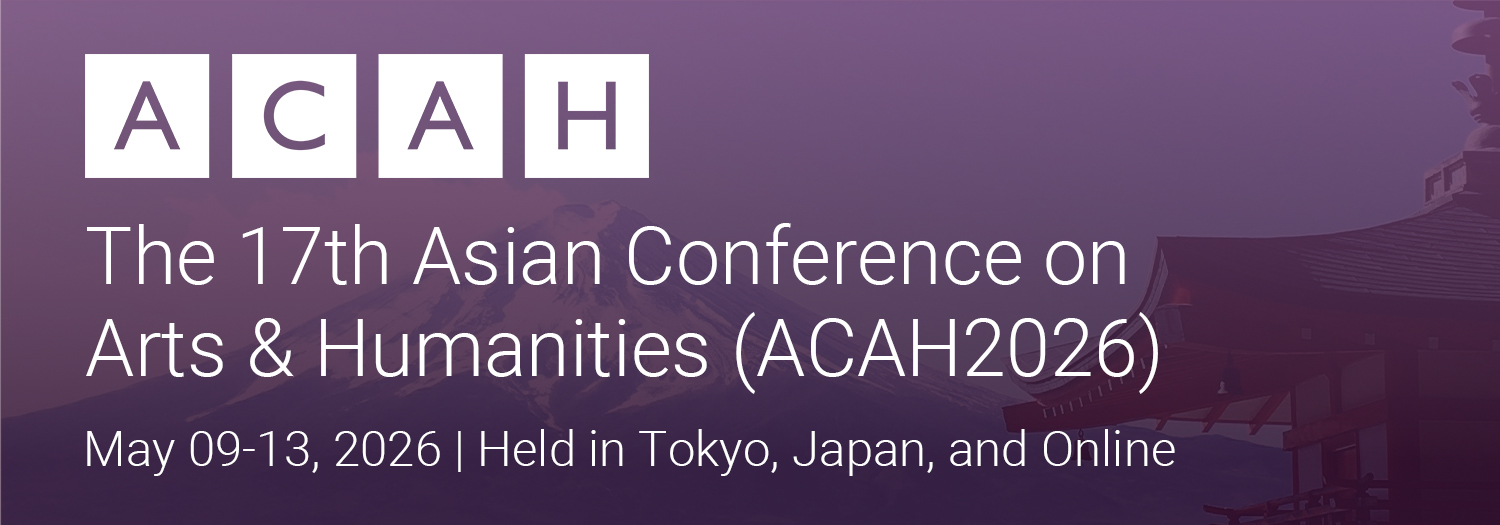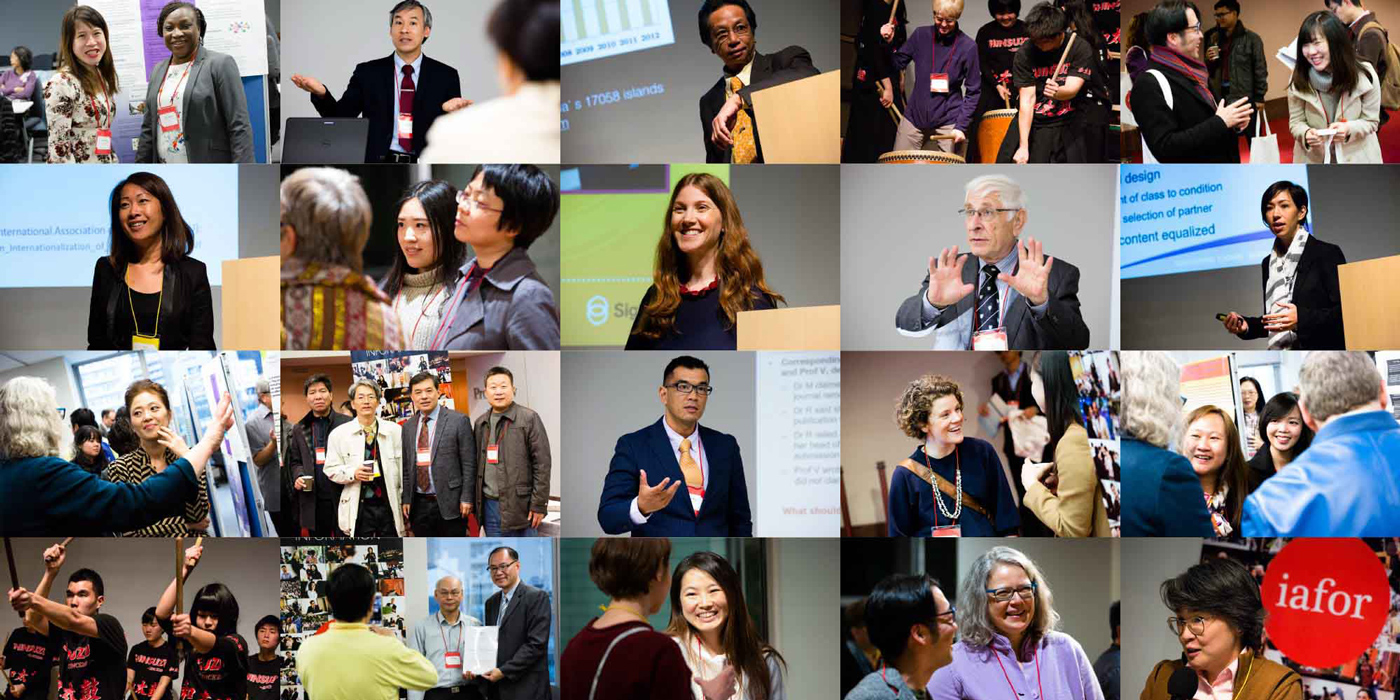Conference Outline
18:00-20:00: Welcome Reception
This is a free event open to all registered delegates
Location: Tokyo International Forum, Tokyo
09:00-10:00: Conference Check-in & Coffee | Hall B5 Foyer (5F)
10:00-10:35: Welcome Address & Recognition of IAFOR Scholarship Winners | Hall B5 (5F) & Online
Joseph Haldane, IAFOR, Japan
10:35-11:05: Keynote Presentation | Hall B5 (5F) & Online
11:30-12:30: Panel Presentation | Hall B5 (5F) & Online
12:30-12:40: Conference Photograph
12:40-14:00: Extended Break
14:00-15:00: Featured Interview | Hall B5 (5F) & Online
15:05-15:30: Keynote Presentation | Hall B5 (5F) & Online
15:45-16:45: Networking Coffee Break & Conference Poster Session | Hall B5 Foyer (5F)
19:00-21:00: Conference Dinner | Shunju Tameikesanno
This is an optional ticketed event
Location: Tokyo International Forum, Tokyo
09:00-10:00: Conference Check-in & Coffee
10:00-10:45: IAFOR Information Session
Melina Neophytou, IAFOR, Japan
Matthew Chima, IAFOR, Japan
This session provides an overview of what to expect at the conference, including guidance on preparing your presentation, publishing opportunities, and ways to engage with IAFOR. You will receive practical tips on setting up your presentation, understanding your role at the conference, including how to attract a larger audience to your session. We will also outline the publishing opportunities available, including how to submit your work to be included in the Conference Proceedings or IAFOR Journals. This session also offers a chance to explore the opportunities for deeper engagement, whether through networking with fellow delegates or getting involved more with IAFOR. Join us, and get ready to present, publish, and participate.
10:45-11:10: Keynote Presentation | Main Conference Room (5F) & Online
11:10-11:25: Q&A
11:25-12:25: The Forum | Main Conference Room (5F) & Online
Melina Neophytou, IAFOR, Japan (Moderator)
12:25-14:00: Extended Break
14:00-15:00: Onsite Parallel Session 1
15:15-15:45: Extended Break
15:45-16:45: Cultural Event | Orion Hall (5F)
This is a free event open to all registered delegates
Location: Tokyo International Forum, Tokyo
08:30-09:15: Conference Check-in & Coffee
09:15-10:55: Onsite Parallel Session 1
10:55-11:10: Coffee Break
11:10-12:50: Onsite Parallel Session 2
12:50-13:05: Coffee Break
13:05-14:45: Onsite Parallel Session 3
14:45-15:00: Coffee Break
15:00-16:40: Onsite Parallel Session 4
16:40-16:55: Coffee Break
16:55-18:35: Onsite Parallel Session 5
Location: Tokyo International Forum, Tokyo
08:30-09:00 Conference Check-in & Coffee
09:00-10:40: Onsite Parallel Session 1
10:40-10:55: Coffee Break
10:55-12:35: Onsite Parallel Session 2
12:35-12:50: Coffee Break
12:50-14:30: Onsite Parallel Session 3
14:30-14:45: Coffee Break
14:45-16:25: Onsite Parallel Session 4
16:30-16:45: Onsite Closing Session | Room 608 (6F)
Conference Venue: Online via Zoom
09:55-10:00: Message from IAFOR
10:00-11:40: Online Parallel Session 1
11:40-11:50: Break
11:50-13:30: Online Parallel Session 2
13:30-13:40: Break
13:40-15:20: Online Parallel Session 3
15:20-15:25: Message from IAFOR
The above schedule may be subject to change.
Featured Presentations
To be announced
Featured Speakers
To be announced
Conference Programme
The draft version of the Conference Programme will be available online on April 06, 2026. All registered delegates will be notified of this publication by email.
*Please be aware that the above schedule may be subject to change.
Important Information Emails
All registered attendees will receive an Important Information email and updates in the run-up to the conference. Please check your email inbox for something from "iafor.org". If you can not find these emails in your normal inbox, it is worth checking in your spam or junk mail folders as many programs filter out emails this way. If these did end up in one of these folders, please add the address to your acceptable senders' folder by whatever method your email program can do this.
Previous Programming
View details of programming for past ACAH conferences via the links below.

